Navigating the delicate process of resignation can be daunting, especially when it stems from a conflict of interest. It's essential to approach this situation with professionalism and clarity, ensuring that your reasons are communicated effectively while maintaining positive relationships. In this article, we'll guide you through a well-crafted resignation letter template that addresses your situation while upholding your integrity and professionalism. So, if you're ready to take the next step, keep reading to discover the best way to express your decision.
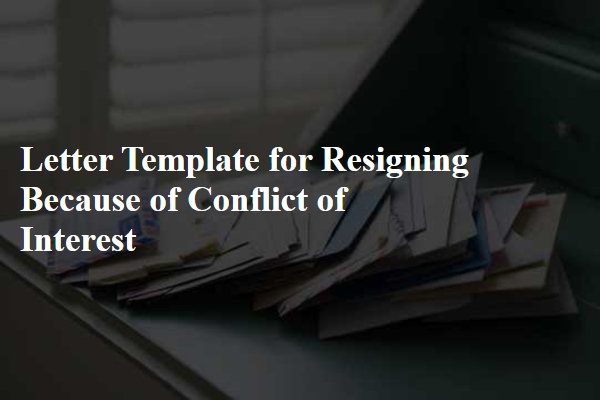
Professional tone
Resignation due to conflict of interest often arises in professional settings when personal interests clash with organizational responsibilities. A professional tone is crucial in such communications to maintain relationships and ensure a smooth transition. In such a case, it's important to articulate your reasons succinctly while expressing gratitude for opportunities provided. Clearly stating the intention to prevent any potential conflicts enhances the professionalism of the resignation. Key details to include involve the effective date of resignation, acknowledgment of the company's contributions to your career growth, and a commitment to ensuring a seamless transition during the notice period. Moreover, maintaining a respectful and appreciative tone fosters goodwill, which can be beneficial for future professional networking. With these elements included, the correspondence reflects maturity and leaves a positive impression.
Clear statement of resignation
When an employee faces a conflict of interest, a clear and professional resignation is essential. A resignation letter should begin with a formal statement expressing the intention to resign. The letter should include the date of departure, typically allowing for a notice period as per company policy or employment contract. It is important to mention appreciation for the opportunities provided by the employer, emphasizing a positive reflection on the experience gained during the tenure. Avoiding detailed explanations regarding the conflict of interest is advisable, maintaining professionalism throughout. This approach helps in preserving relationships and ensuring a smooth transition for both parties involved.
Explanation of conflict of interest
Conflicts of interest arise when an individual's personal interests or relationships interfere with their professional obligations or decision-making processes. For instance, an employee working for a private company may have a financial stake in a competing business, which can lead to biased decisions that do not align with the company's best interests. In another scenario, a government official may have close ties to a contractor seeking government contracts, raising ethical concerns about favoritism and integrity. Such situations can undermine trust, hinder transparency, and ultimately compromise the integrity of the individual and the organization involved. The importance of addressing conflicts of interest is paramount, as they can lead to legal repercussions, loss of reputation, and diminished stakeholder confidence.
Gratitude for opportunities
Resigning due to a conflict of interest often requires a delicate approach, emphasizing gratitude for the opportunities received. Consider emphasizing the following points in your resignation letter template: 1. **Expression of Gratitude**: Recognize and appreciate the learning experiences and career growth facilitated by the organization. Mention specific skills or experiences gained. 2. **Clear Reason for Resignation**: Briefly indicate the conflict of interest that prompted the decision to resign, ensuring clarity while maintaining professionalism. 3. **Offer to Assist with Transition**: Show willingness to help during the transition period, ensuring a smooth handover of responsibilities. 4. **Positive Tone**: Keep the tone respectful and positive, preserving relationships for potential future opportunities or networking. Incorporate these details for a well-rounded approach while drafting your resignation letter.
Offer to assist in transition
Resigning due to a conflict of interest often necessitates a thoughtful approach. Understanding the nuances of ethical implications within your specific industry, whether it's finance, healthcare, or technology, is essential. The resignation should express gratitude for the experience and indicate an intention to assist with a seamless transition. Offer to help with training a replacement or documenting processes that ensure continuity, reflecting a commitment to professional integrity. Addressing supervisors directly, like a department head or HR manager, adds a personal touch. This approach not only helps maintain relationships but also affirms a responsible departure from the organization.
Letter Template For Resigning Because Of Conflict Of Interest Samples
Letter template of resignation from a position related to conflicting interests.
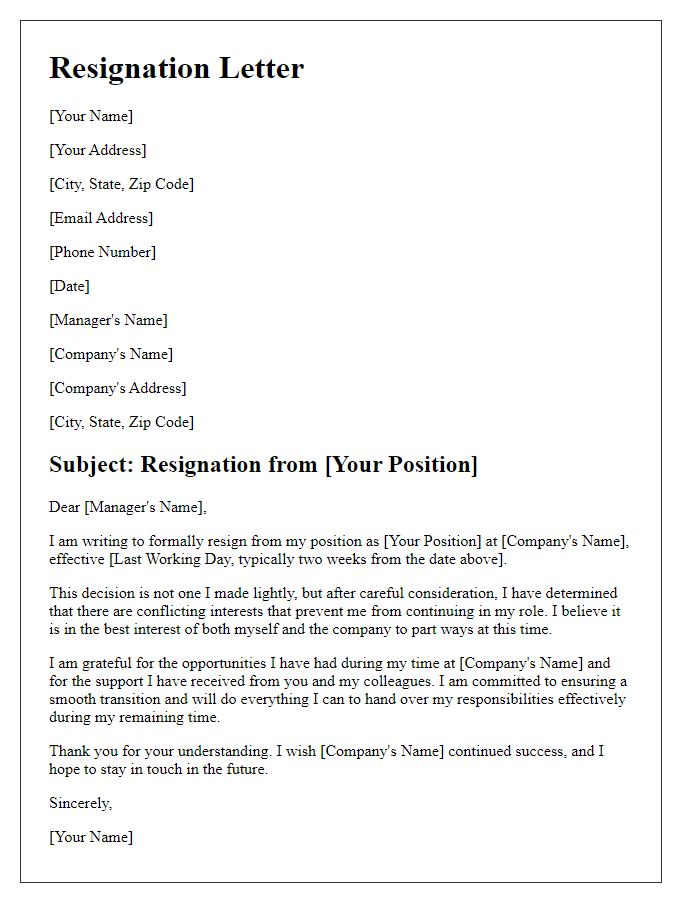

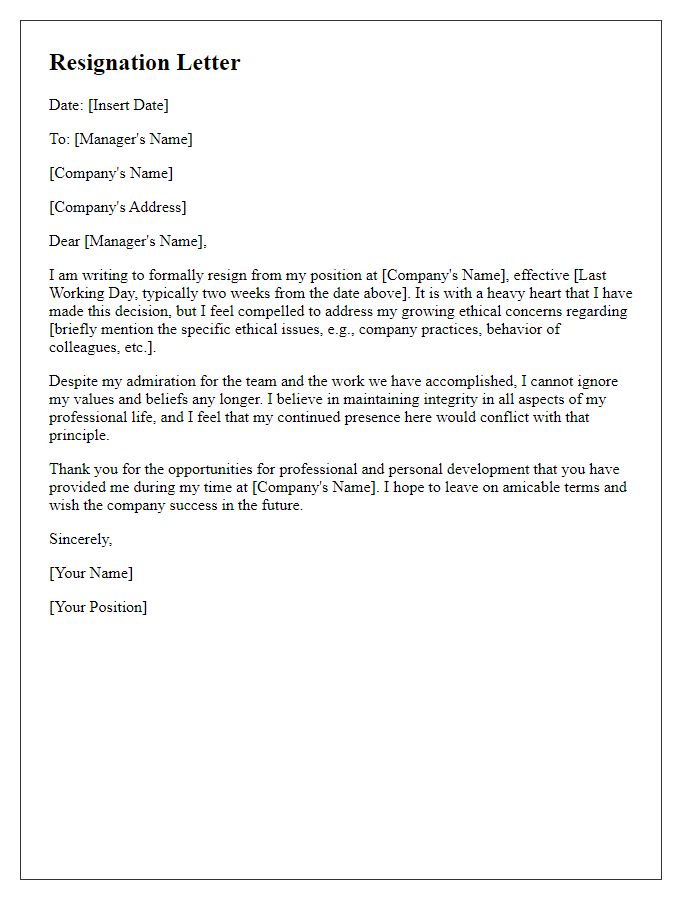
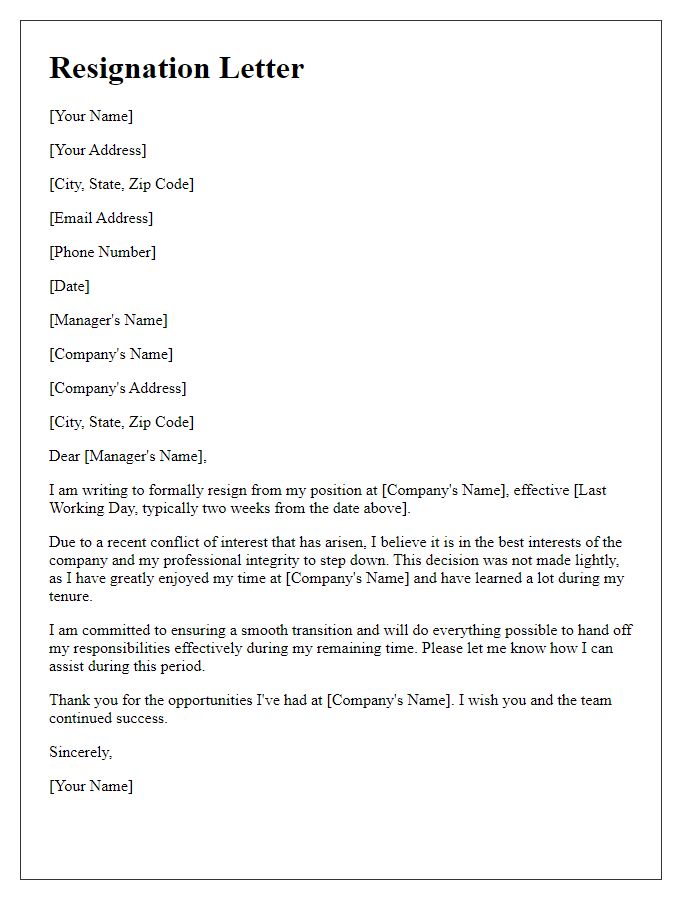
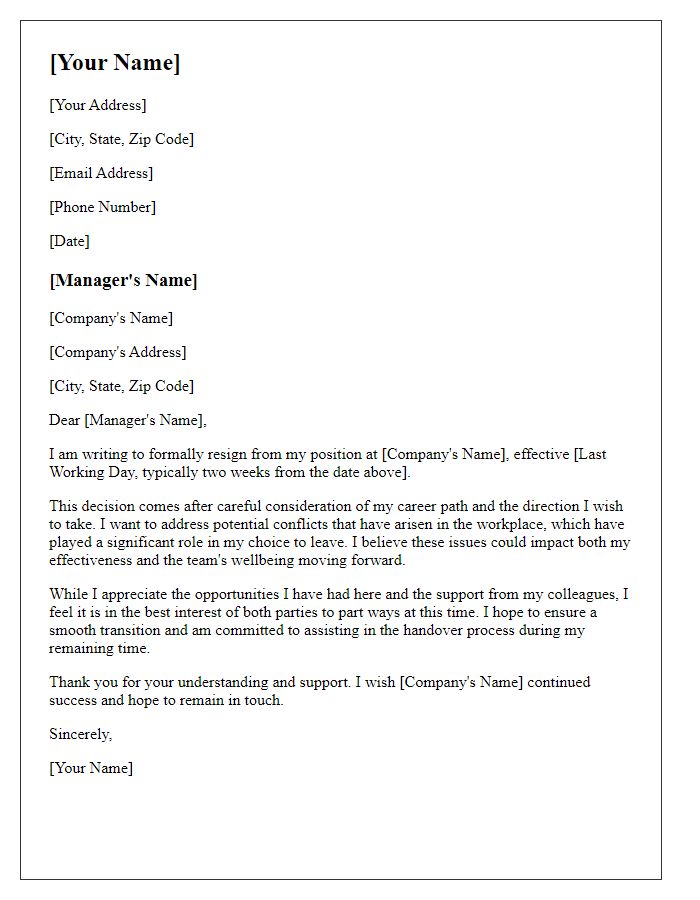
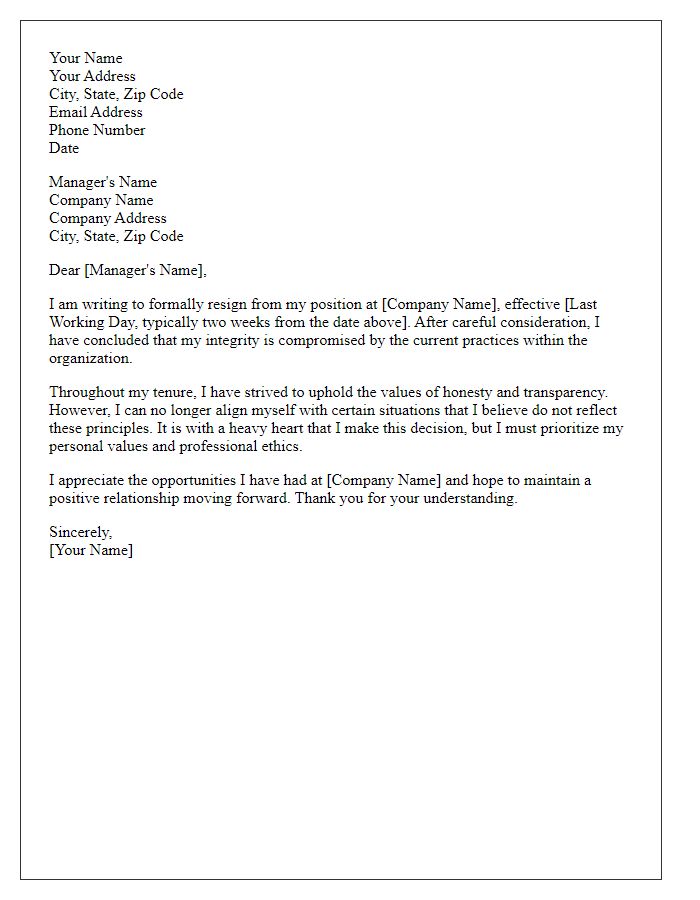
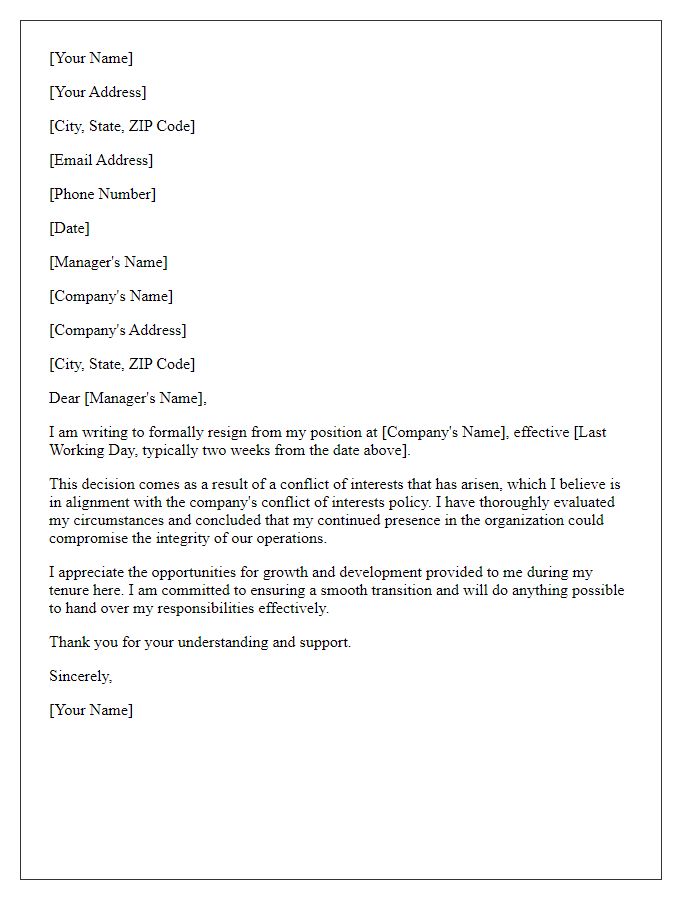
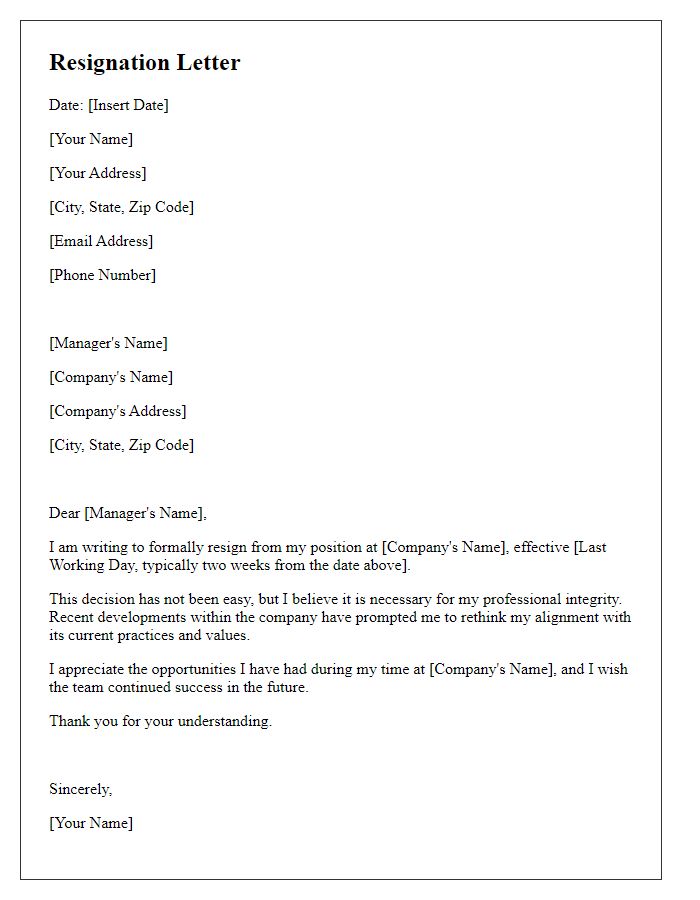
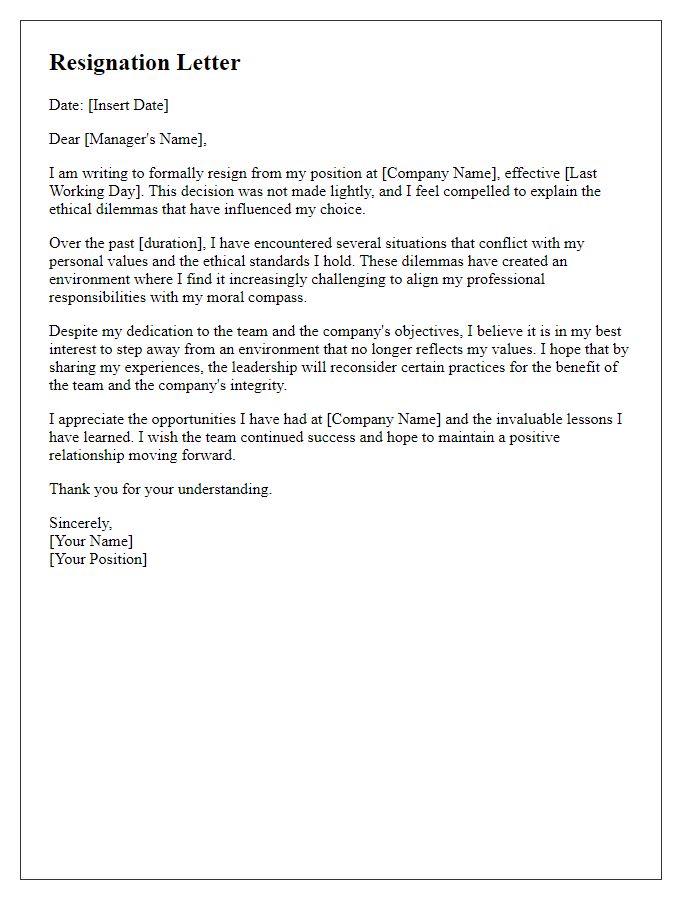
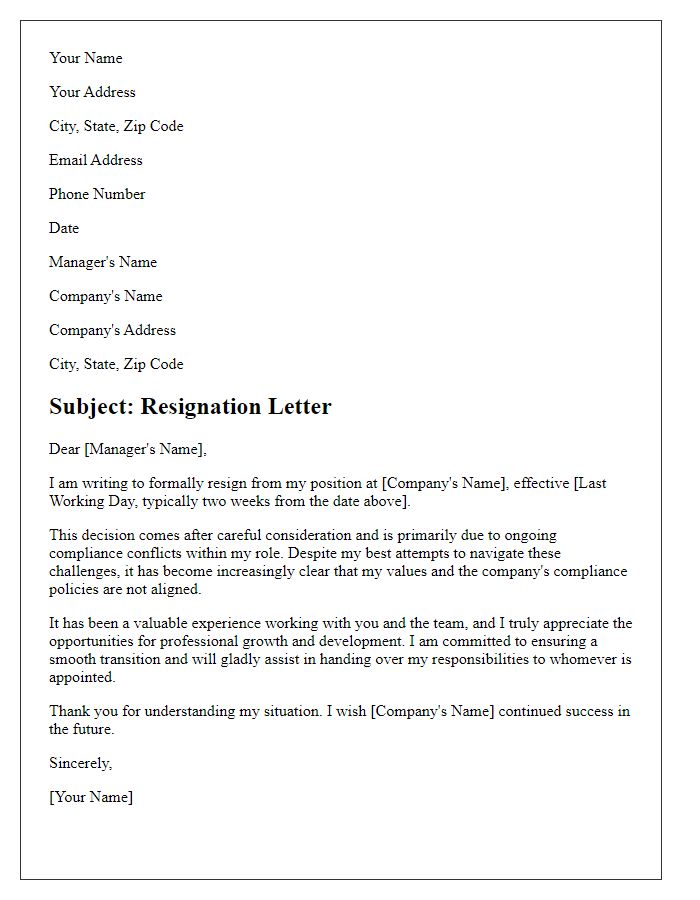
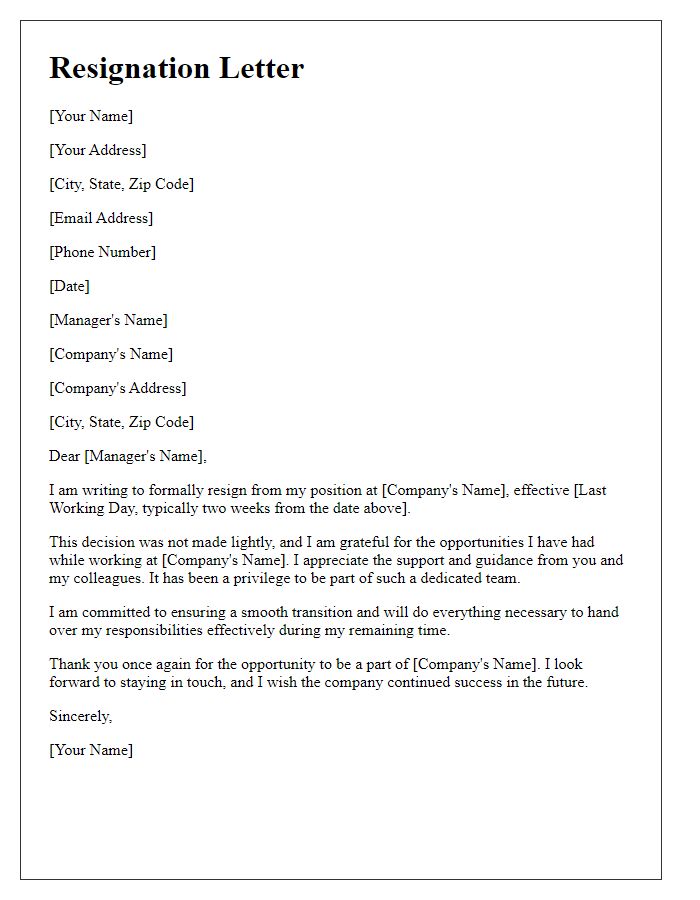


Comments